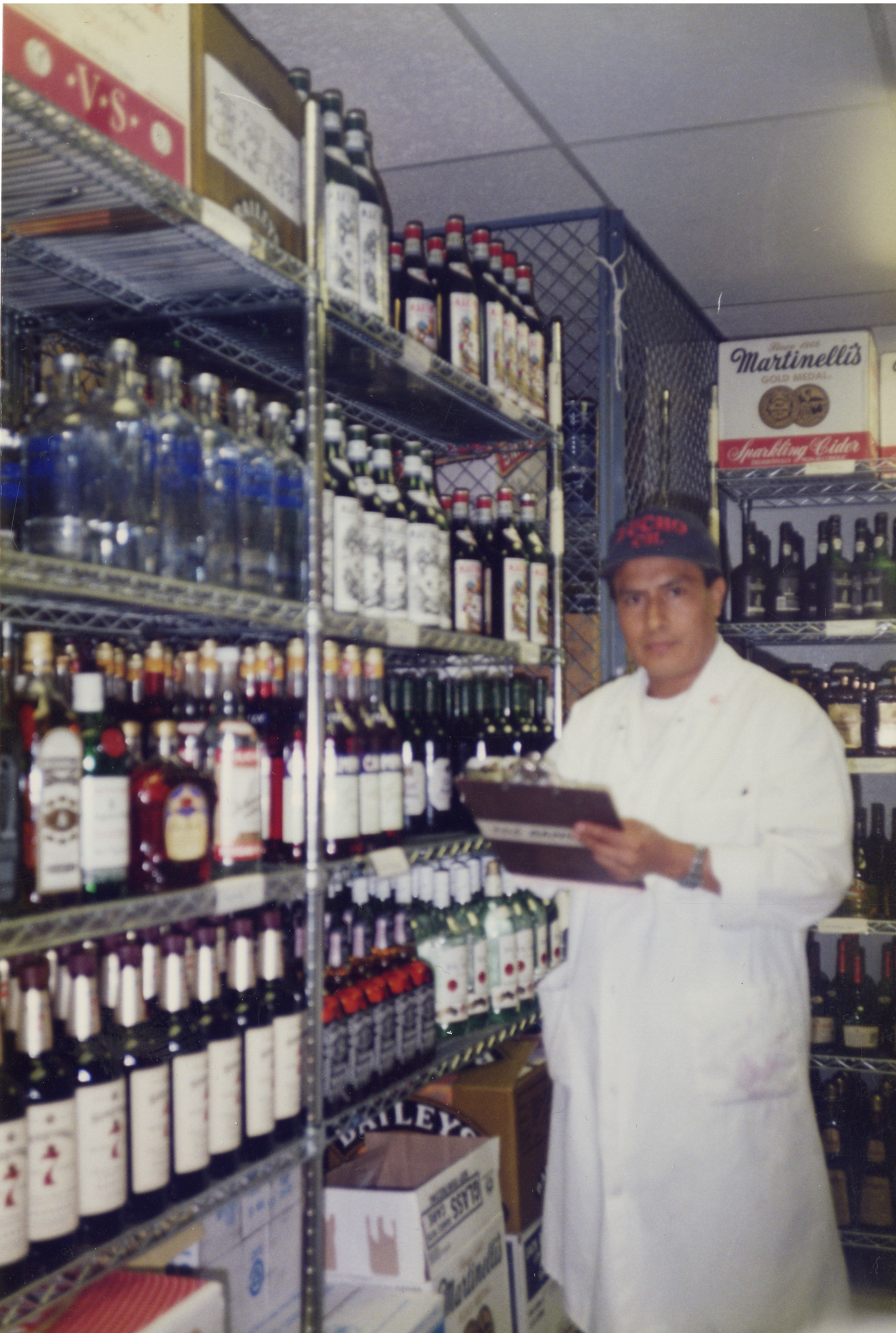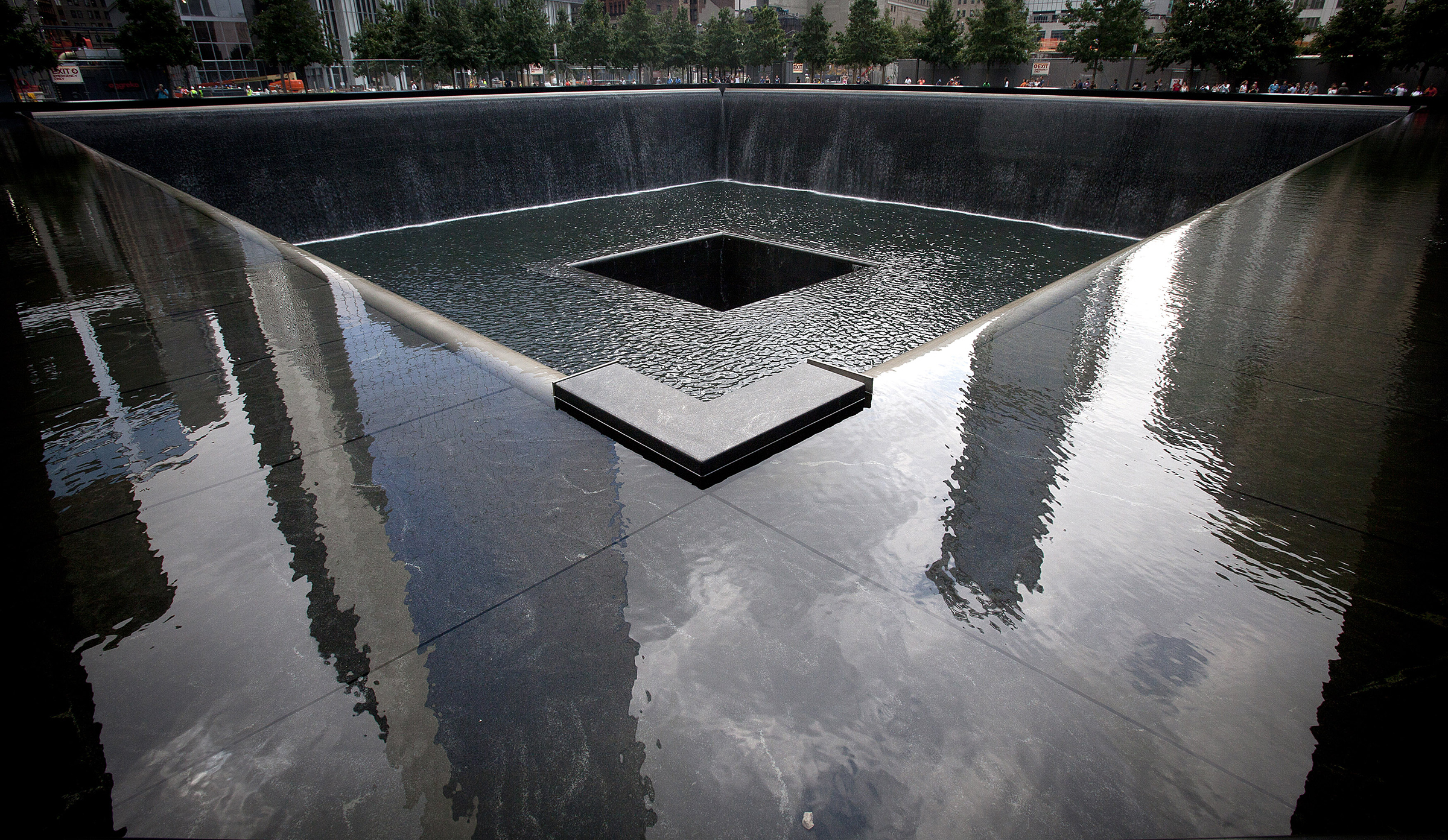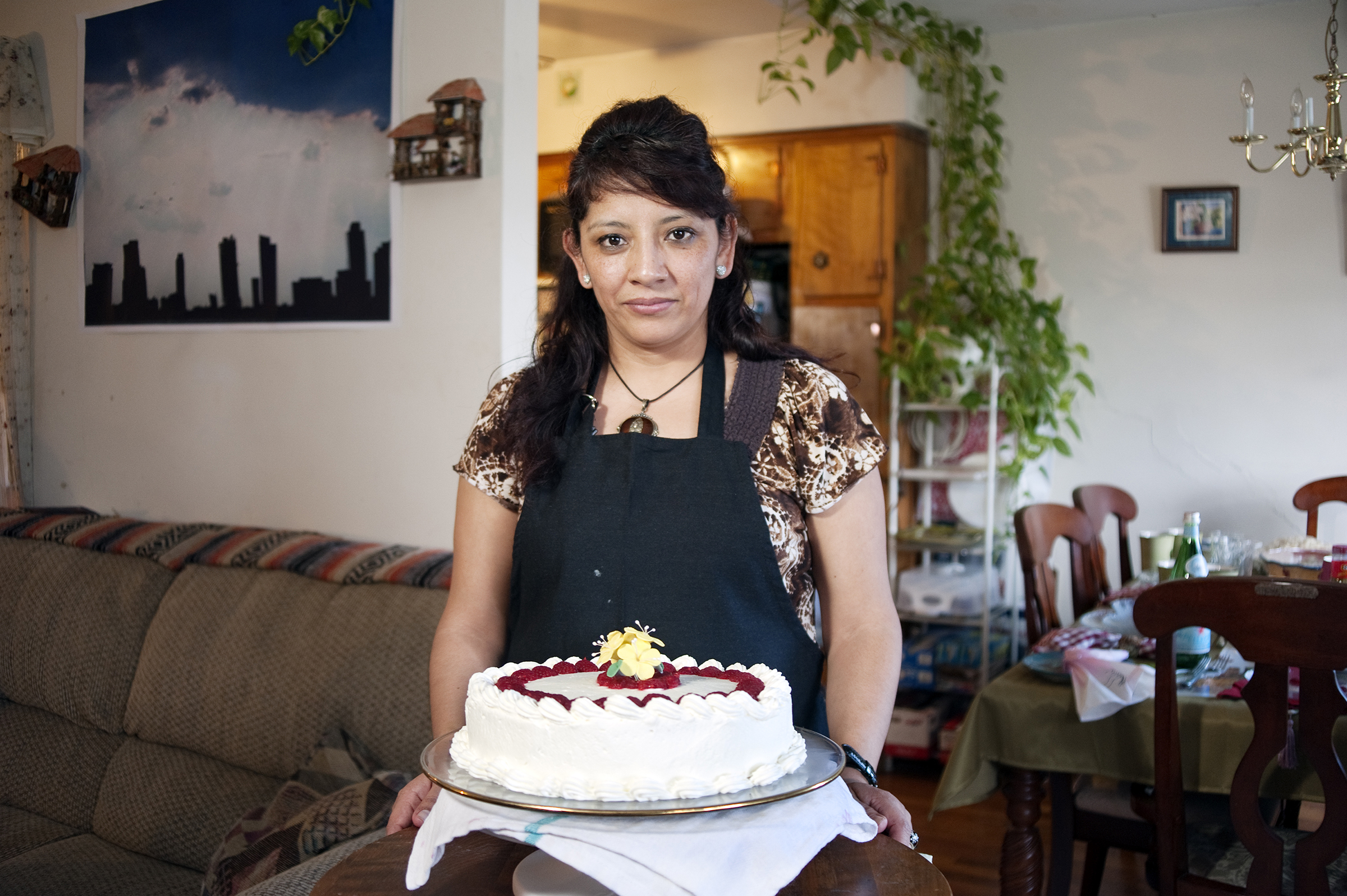Ana Soria had known Luis Alfonso Chimbo since she was a child. They grew up 8,000 feet above sea level in the mountains of Ecuador in the church-filled city of Cuenca. Their families made pork fried rice and sold it together on the streets during holidays.
After Soria and Chimbo were married in 1988, he went to work in New York for a couple of years before coming back to Ecuador to bring her to America. They moved to Queens to raise their son. He worked as a bus boy in restaurants around Rockefeller Center but he wanted work with better prospects.
When a friend helped him land his dream job in 1996 in the receiving department that processes all of the food, liquor and supplies for the Windows on the World restaurant that was at the top of the North Tower of the World Trade Center, thirty-four-year-old Chimbo acted like a little boy getting a toy that he’d always wanted. He couldn’t stop smiling from ear to ear. Chimbo and Soria hoped to open up their own restaurant one day and now it seemed possible. She planned to go to cooking school.

Once he began working at Windows, he would demonstrate the skills of his trade to his wife and their son, Luis Eduardo, while walking in markets in Queens and showing them how to smell a melon to gauge its freshness.
Chimbo was promoted to a management position in 2001. That August when Soria suffered a miscarriage, he took time off to care for her with plans to return to work on September 11th. The day before, his wife teased him because he was already meticulously getting his clothes and bag ready. But he was like that: very orderly.
At five in the morning on September 11th, Chimbo was up and he quietly left around five thirty. Normally, he would kiss his wife, still in bed, but not that morning. As he drove away from their home, Soria got up and went to the window and said, “Goodbye, my love.”
Windows on the World opened in 1976 at the top of a confounding building at a nadir in the city’s history. But the restaurant quickly moved from being a controversial confection atop a billion-dollar fiasco to being a beloved icon on top of the world’s most famous skyline.
The restaurant helped transform antipathy toward the World Trade Center into acceptance, making the complex an essential part of the city’s identity. In the words of Guy Tozzoli, the director of the World Trade Center and its primary builder, Windows “turned the city of New York from looking at the Trade Center as some monster downtown to something that was theirs.”
In 2001, Windows was the highest-grossing restaurant in the country. It had become a must-see destination for out-of-town guests, a go-to special occasion spot for New Yorkers and a lifeline to hundreds and hundreds of working immigrants, some of whom, like Chimbo, were undocumented.
The Windows on the World staff of 400-plus workers included immigrants from more than two dozen countries. On 9/11, Chimbo was one of the seventy-three Windows employees who died, along with six men working on a renovation job for the restaurant, and ninety-one guests.

Nothing could fully salve the pain of 9/11, but there is some solace in recognizing how the country pulled itself together, not in its anger but with compassion for the victims and for the city. This sympathy took its most material form in the Victims Compensation Fund, which was distributed in 2004. Special Master Kenneth Feinberg determined that more than seven billion dollars was appropriate for the five thousand five hundred sixty people who applied as injured or dependents of the deceased.
Feinberg developed a formula of payment partly based on “economic loss”: how much income a person would have made over his or her lifetime, an assessment that is tied to one’s interpretation of some fundamental American principles. If one is to believe that pot washers and grill cooks are fated to never rise above their near-minimum wages, what does that say about their right to the pursuit of happiness?
Windows owner David Emil and executive chef Michael Lomonaco testified to Feinberg that their employees indeed had the potential to rise. And they provided ample evidence, including Chimbo, the son of a taxi driver, who had moved from being a stock boy to a manager in the receiving department.
“The structure of the restaurant reflected the American Dream, which I don’t use as a cliché but as an actual possibility,” says lawyer Debra Steinberg, who represented Soria, and chaired a consortium of New York law firms that represented, pro bono, the families of thirty-seven Windows workers. “When you drill down into the stories of the immigrants who worked at Windows on the World, most of them said that it was the dream job. They walked with pride in their step. It was an astonishing place.”
Feinberg says that the Windows victims had a “tremendous impact” on his thinking about the distribution of the fund, not just because some of them were among the lowest-paid workers killed but because about a dozen of them, like Chimbo, were undocumented. He says he used his “discretion to bring up the lower end worker and reduce the stockbrokers and hedge fund managers.” And, based on his reading of the congressional statute, it was clear to Feinberg that the fund was meant for all victims of the attacks, without question of nationality or citizenship.
“Only in America would you have such a generous compensation program,” Feinberg says.
Soria was also in the United States illegally. During the first days after 9/11, she was reluctant to ask for support for herself and her twelve-year-old son. “I was scared,” she says. “[And] I was thinking that maybe I did not deserve it because this was not my country.”
But her son’s need for asthma medication propelled her into Manhattan from their home in Queens. It was all a terrifying, confusing blur for Soria, but the help she received, she says, “was so beautiful.”
In June 2018, Soria took the train from Queens to the north reflecting pool, which stands inside the footprint of the long-gone North Tower. Soria likes to go on September 11, but she felt like going for her husband’s birthday. She brought a flower and a birthday card, on which she wrote, To the love of my life, happy birthday to you. Surprise, you didn’t know I was coming.
She arrived around lunchtime and placed the card and flower on his name cut in bronze. And then she stepped back a little and stood amid the flow of tourists. Chimbo, who is among the more than one thousand victims whose remains were never found, had once told her that if he died first, he wanted her to scatter his ashes in the ocean. Soria believes his wish came true when the building imploded and her husband disappeared into the air above the Atlantic.

She watched people open the card and read it. Some were moved to the point of tears. Some put their hands on their hearts. They didn’t need to talk. Soria quietly watched for hours. You see, Al, Soria thought, all these people came to your birthday.
In 2007, Soria took a baking class partly to follow through with her and Luis’s dream and partly to show her son that “that there is life after what happened.” In 2016, she finally received her green card after years of persistence by her lawyer. She now makes dulce de leche, cheesecake, and other desserts for her friends and family, including her son, who is a photographer and graphic designer.
Soria remains terribly conflicted about the money she received, which she calls “blood money.” She is tormented by how the achievement of her and husband’s hopes for a better life came at the cost of his own.
As evening approached at the World Trade Center memorial, Soria was looking for a moment when she could be alone with her husband, so she could sing him “Happy Birthday,” but people just kept coming, until four American women, college-age, tall out-of-towners with long, blond hair, read the card and began to sing, “Happy Birthday.”
Soria walked up to them and said, “Thank you so much. Thank you.” They asked her how she was related to the memorial, and she told them, “He was my husband. I was going to sing to him.”
The young women asked Soria if they could sing with her, and she liked the idea. They sang and cried together. “I felt peace in my heart,” she says.
Nearly a generation had grown up since 9/11. But Windows on the World was still bringing people together to share a New York moment that they would never forget.
Adapted, with permission, from The Most Spectacular Restaurant in the World: The Twin Towers, Windows on the World, and the Rebirth of New York.
More Must-Reads from TIME
- Donald Trump Is TIME's 2024 Person of the Year
- Why We Chose Trump as Person of the Year
- Is Intermittent Fasting Good or Bad for You?
- The 100 Must-Read Books of 2024
- The 20 Best Christmas TV Episodes
- Column: If Optimism Feels Ridiculous Now, Try Hope
- The Future of Climate Action Is Trade Policy
- Merle Bombardieri Is Helping People Make the Baby Decision
Contact us at letters@time.com